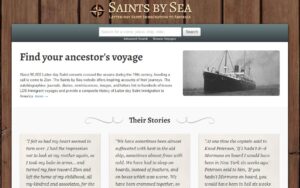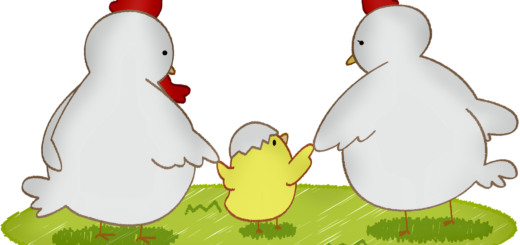Unique family trees

Just as every chick and tree are different, so are each of our family trees. And for a lot of different reasons. Sometimes the unsolvable, really isn’t solvable and sometimes it takes more time, skill, money than we currently have. Which of these do you relate with your family tree?
- Sparse
- Immigration block
- Language barrier
- Early United States
- Church pioneer
- Records but no stories
- Excess records and stories
I personally relate with almost all on the list in different lines of my tree.
Sparse– May be just starting to find your family, may be adopted and excited to see what your DNA brings, may not have accounts on Ancestry, FamilySearch etc. connected to living or deceased family members.
Welcome, you will make a huge difference in your family! Little additions will be huge as proof provides your heritage.
Your task:
- Create free accounts to find out what is already available on your family
- Connect with living relatives to find out what they do know or at least stories where you can start to find proof
- Learn what records will help you get back to the next generation
Immigration causes lack of records- This can be so frustrating to not have names and stories of even those so close to you.
Your task:
- Record what you do know or have heard. family stories of destroyed records and why.
- Connect with living relatives you know and as you search records,
- Keep track of names and locations that seem to line up the family line, correct location and parents names. They may not be easily seen as good connections until the lines cross with additional records.
Language barrier– But I don’t know the language, learning just a few words can help lead you to begin reading records that may be available. Google translate can help as well as someone who knows the language, either high school, college courses, mission, etc can be invaluable here.
Your task:
- Learn how dates are formatted for area you are researching
- Naming patterns and married vs maiden name practices
- Find language helps online, google translate, and facebook groups
- Use FS Wiki, search by place to find words used in records and documents
FamilySearch has helps for different languages on the wiki. When there was a push to work on Italian indexing, there were helpful sheets with dates, names, cultural changes to be aware of when looking at records. My husband is part Italian and I used those Italian handouts to occasionaly help research and was in the right place to help a friend find more about her italian grandparents. Searching the area, finally led to finding her grandmother’s birth certificate in Italian!
Early United States– records are more sparse as the states were being formed, census records before 1850 are little more than tick marks to show who lived there. This can be frustating or plentiful depending on your area.
- Learn what heritage databases have for your area (ie AmericanAncestors, LOC.gov)
- Search the catalogs for Ancestry, FamilySearch by location
- Use archive.org to find no longer printed books, documents and stories
- Learn migration paths others in the same area took when they settled or left
- If they are military, use Fold3 to find war records, land grants, and stories of their battles
Searching for the death of my 4th great grandma in a pioneer family. She is not mentioned at all after she appears as a tick mark in the census records in New York. I sent a records request to the area. I had never done that, but hoped the email would get where it needed to be seen. When I heard back, my email had been forwarded 6 times and the lady who wrote back not only found a record they didn’t know existed, but digitized the entire project and send me the pertinent information. It was huge discovery! That led to the next year of finding more family for Polly.)
Records but no stories– By looking at the records and searching for occupations and records specific to that area, you can start to piece their stories together. Families often kept the same occupation due to social status, financial situation. But they also could apprentice and find different work or during the industrail revolution, many occupations became more factory positions.
- Look over the records that are already attached on family trees
- Look at records that only you have and share them. Look for hints in the records for more places to search.
- Search for newspapers or *newsletters in the area your ancestor is from
- Using the FAN club, search for other family members, notice occupations and where they lived.
*I wanted to know the Foster family story and that is how I finally broke into finding more family to add to my tree. I found a possible name to add to the tree, but was too chicken to do it so I sat on it. I searched online for “Foster family Billinge, England” and found a newsletter and searched it for common family names. A few mentions here and there and then on the last pages an Appendix listing the Foster family lines starting with my 5th great grandfather who fought during the Napoleaonic wars! What did I do with the research…? I still sat on it, didn’t share it until someone asked my thoughts. I sent the newsletter to her and it verifed the records we both had found, and added a lot of color and members to our Foster family!
Latter-day saint pioneer ancestors– The Restored Church of Jesus Christ is really trying to help you connect in new ways. they find ancestors in books, histories, wagon trains and handcart companies. By reading the stories you learn what they faced, who they became. Even if you are only reading stories, you will begin to notice things in the stories that will lead to more records. specific areas or organizations listed that may have more stories or records on your ancestors. The names will come alive for you, but also when you see similar names in records it will help you make connections you never could have wihout becoming familiar with the family names.
Your task:
- Read your family stories, learn who is a part of their FAN club
- Check out SaintsbySea and Church pioneer and missions for immigration dates and histories

Excess records and stories, 40+ sources and stories attached on every direct line family member- Even if at first glance the family seems complete, I promise it is not!
One child missing can create 100s of names with each child and each child’s family. Remember the Foster family from above: They had 2 previously unknown children, who we found in military births, and later found them living near their parents. One even signed my 5th great grandfather’s death record after coming back from Van Dieman’s land (Austrailia) prison colony. All of that is now added to Henry Foster’s dash to tell more of his family story.)
Your task:
- Try FamilySearch Descendency view for known children, search records of parents for missing children.
- Search for missing children using parents names or mother’s maiden name
- Create and share stories, snippets, memes, videos, sound bites so the next generation will not only have the stories but learn from them and enjoy them.
Seeing each of your trees helps me understand you better, even if I’m only helping with one line. I start to see your family heritage, what matters most to you and those you love. Your voice dialects are more easy to name based on locations your ancestors came from. You are living your dash and addng to theirs at the same time.
Happy Searching!


